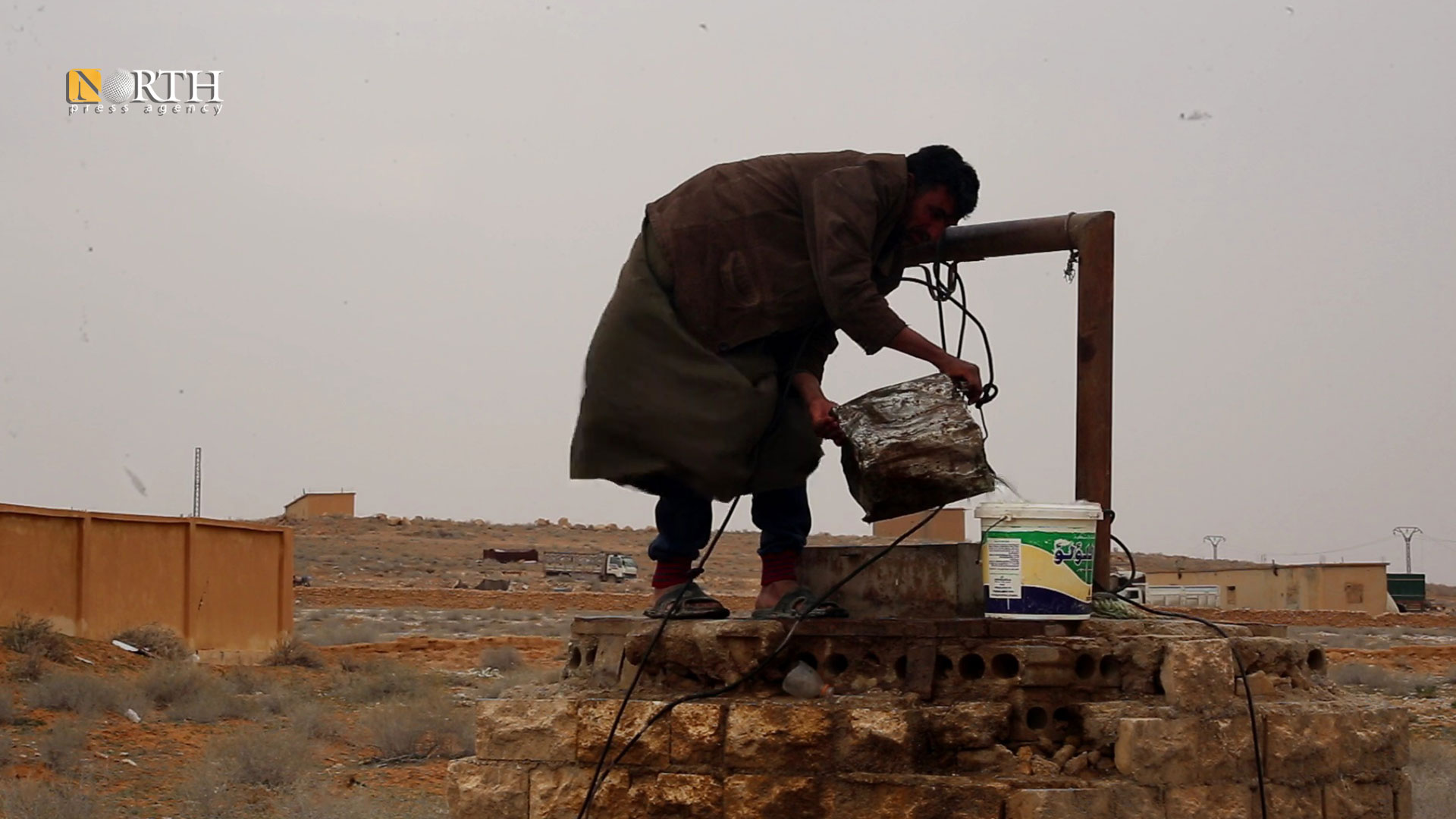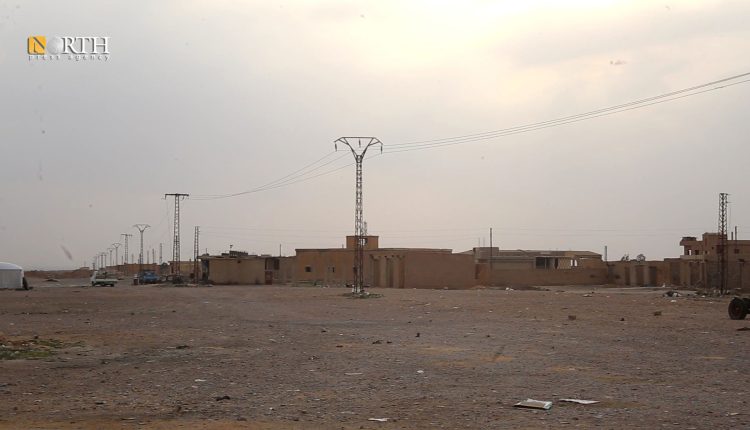By Ali al-Beki’
DEIR EZ-ZOR, Syria (North Press) – Years after war and displacement, returning residents of a village in the western countryside of Deir ez-Zor, eastern Syria, face an unforgiving reality—no water, no electricity, no schools, and no medical services. As they fight for survival, their calls for help remain unanswered.
In the heart of the barren Syrian desert, where life becomes even harsher during the cold season, lies the village of Kabajib, a place that has become a symbol of suffering and neglect.
The few residents who returned after years of displacement now face a grim reality, deprived of even the most basic necessities. Thirst consumes their bodies, while the lack of education steals the future of their children.
Lacking essentials
Majed al-Ali told North Press that “the area is completely devoid of services. Ninety percent of the village’s residents have not returned due to the absence of even the most basic necessities of life.”
He described their daily struggle to find water, explaining that fetching a single gallon requires a journey of up to 50 kilometers. Meanwhile, a single barrel of tanker-delivered water costs 20,000 Syrian pounds, with no electricity or telecommunications networks available.
The village consists of approximately 100 homes, yet it receives no official bread rations. Instead, residents are forced to buy bread from vendors at prices ranging between 10,000 and 15,000 Syrian pounds per bundle, al-Ali noted.
Additionally, there are no medical supplies, healthcare services, or clinics in the village. This forces residents to travel 50 kilometers to Deir ez-Zor for medical attention. With no public transport available, reaching the city requires hiring a private taxi, which costs 600,000 Syrian pounds—a fortune for most.
“If a family member falls ill at night, there are no cars available, and no one to accompany me to the hospital,” al-Ali added.
He also highlighted the complete absence of schools, leaving children aged 5 to 10 unable to read or even write their own names due to the lack of educational institutions.

Crumbling infrastructure
Mohammed Mutairan al-Fad’aan, another resident of Kabajib, described the deteriorating infrastructure. “We suffer from a lack of water and dysfunctional communication networks. There are so many essential services that this village desperately needs.”
As a livestock-dependent community, residents also live under constant threat from landmines scattered throughout the area. “Wherever you go, there are mines,” he said, noting that every step could be their last.
“We have no choice but to live here, and we hope the government takes action to address this tragic situation,” he pleaded. “We struggle to secure even a water tank by any means necessary. Even if the price of a barrel reaches 100,000 Syrian pounds, we would pay—if only someone would bring us water.”
He continued, “We are completely deprived. No schools, no clinics, no communication services—nothing at all. If someone gets sick, they must either be taken to Damascus or the nearest hospital in Deir ez-Zor, which is 50 kilometers away.”
Ahmed Matar al-Fadhi, another villager, expressed frustration over being ignored by both the government and humanitarian organizations.
“No one listens to our demands. We suffer from a severe lack of essential services—there is no electricity, drinking water, mobile networks, or medical centers,” he said.
He recalled returning to the village after being displaced 10 years ago under the previous regime, only to find it completely looted. “Even the electricity poles were stolen. There are no doors or windows in our homes.”
The local clinic was destroyed, stripped of all equipment, and left unusable, he added. Education has been absent for over nine years, leaving an entire generation illiterate. “We now have a generation of 20-year-olds who have never attended school,” he lamented.
Kabajib’s residents are urgently calling on the new government to provide basic services, including water, electricity, and internet access. Their most pressing demands include the establishment of a health clinic, access to subsidized bread, and the deployment of daily water tankers to supply drinking water to the village.

